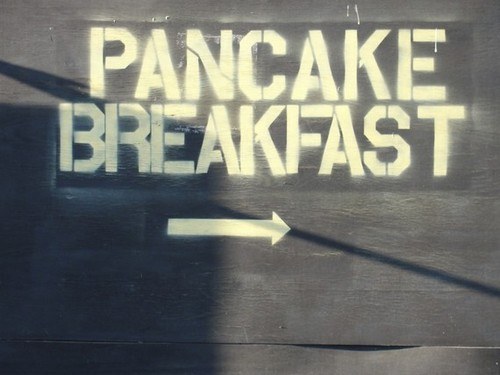Have you ever flirted with the idea of doing a marathon, so you could eat whatever you want?
Turns out that eating with abandon isn’t a good idea, even for long-distance runners.
In fact, experts say you should be more vigilant about what you eat while training for a marathon, when there are hydration, glycogen, and nutrition demands on the body. A marathon is not a highfalutin excuse to load up on pancake brunches.
Why? “People overestimate how many calories they’re actually expending and they underestimate how many they are taking in,” says New York City nutritionist Cara Anselmo, MS, RD, and a marathoner. “I think that’s the case all the time, but during marathon training it's especially true.”
YOU DON'T NEED TO CARBO LOAD
Instead of giving yourself a free pass to indiscriminately carbo load or eat meals twice the necessary size, distance runners should plan and pace marathon-training meals like you do your runs.
"If you want to maintain or lose weight, the only time you should eat a bit more is before a long run of more than six or seven miles," says Ariane Hundt, a nutritionist, triathlete, and founder of Brooklyn Bridge Boot Camp. "I'm referring to more vegetables and some brown rice—not a bowl of pasta. Refined carbs will spike your blood sugar and leave you feeling empty and crummy in the morning—and they can quickly result in fat storage."
AVOID 400-CALORIE RECOVERY DRINKS

{{post.sponsorText}}
Calorie-laden recovery beverages have become a justifiable junk food for runners.
“A lot of runner weight gain comes from protein shakes or sports drinks like Gatorade because they have excessive calories, and because people are having them in addition to meals and snacks,” Anselmo says. “Those muscle milk drinks have 400 calories—that's a meal, not a snack!” Anselmo wishes more runners would reach for water, or Nuun tablets, since they provide electrolytes without sugar or calories.
Terence Gerchberg, a running and Brooklyn Bridge Boot Camp coach, who’s completed the past 14 New York City marathons, recommends refueling with a carb-protein combo, something like yogurt or almond butter on whole grain toast, which helps balance glycogen stores.
FUEL UP ON HEALTHY FOODS
Of course, if you feel hungrier during marathon-training season—and a lot of runners do—let those added calories be from healthy foods. “Fill up on lean protein and lots of plant protein, and cook with beans, legumes, and whole grains (pasta, breads, quinoa) instead of white flour, says Anselmo. “But again, even with healthy foods, you have to watch the amount you eat.”
For Gerchberg, it’s a very simple formula: “It’s calories in versus calories out.”
Bottom line? Don’t use running as an excuse to eat whatever you want. —Katharine Herrup
More Reading
Running's newest recruits? Yogis
Would you wear running shoes that came with a warning?
Coconut water: Should you keep drinking it?
Loading More Posts...
